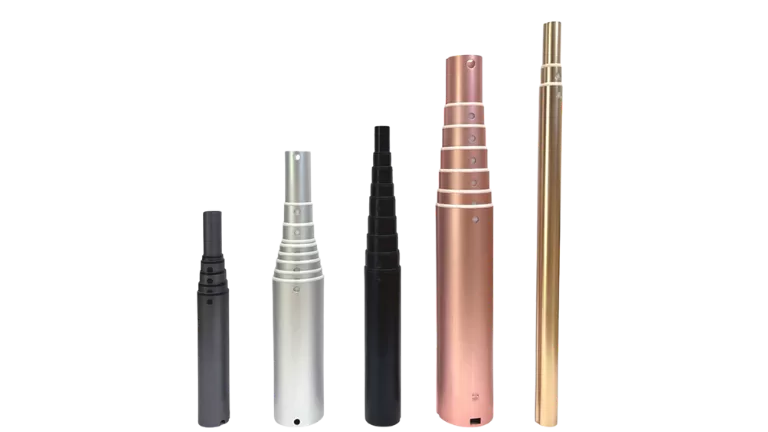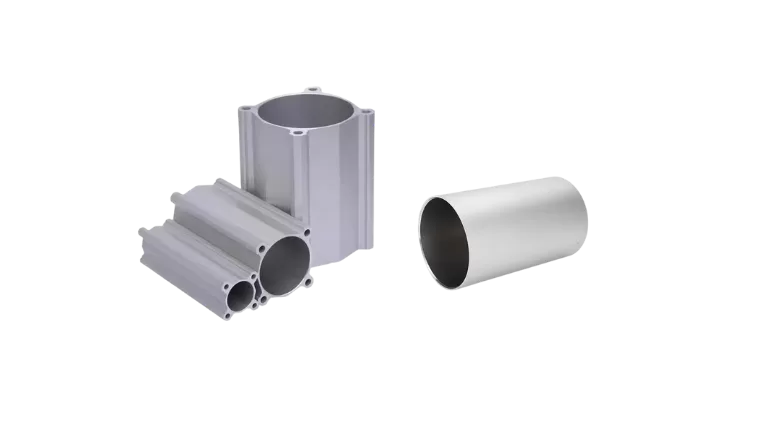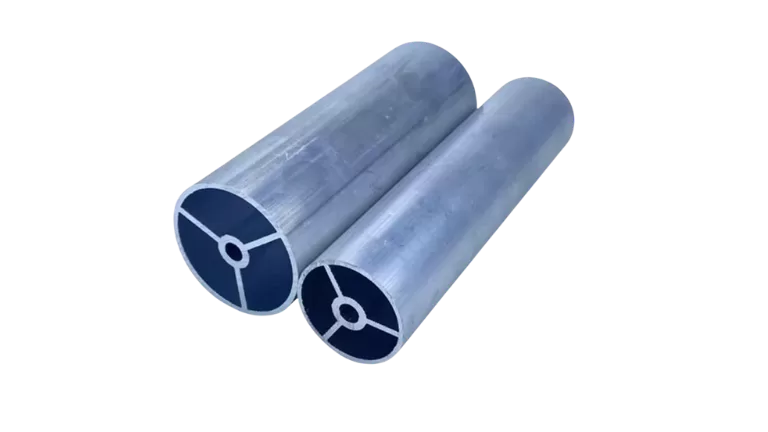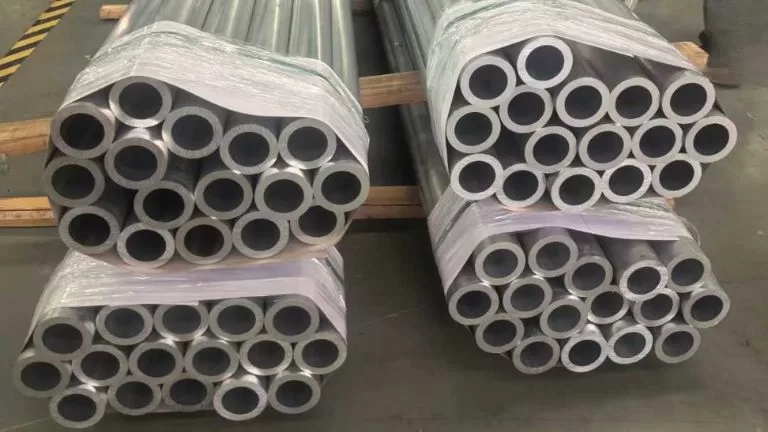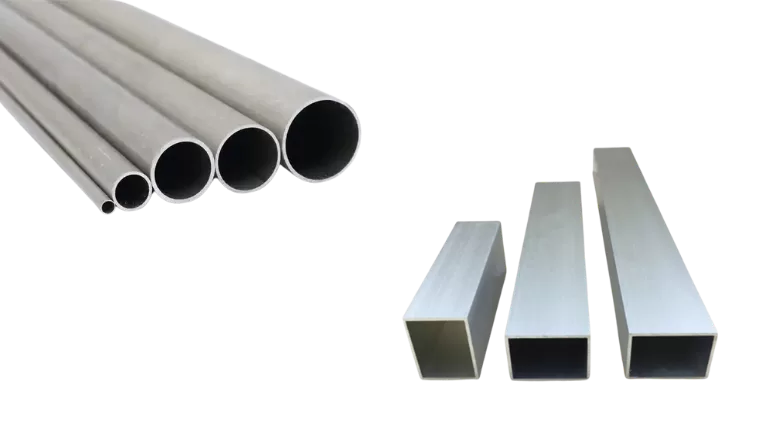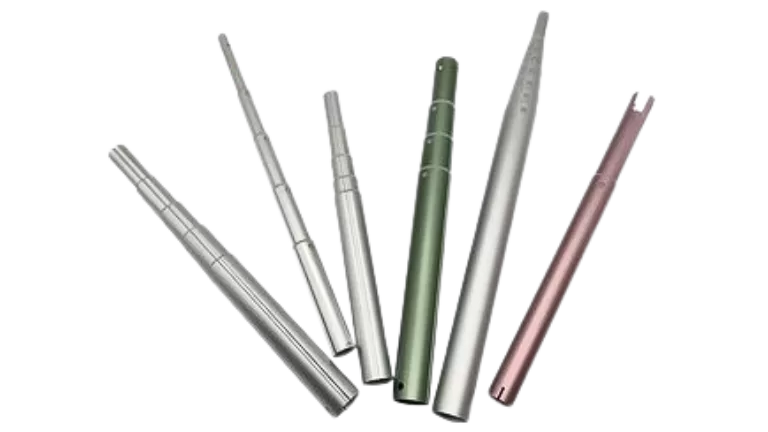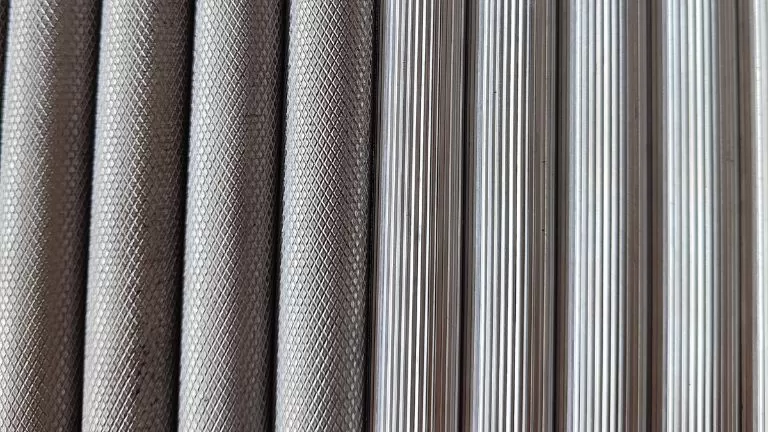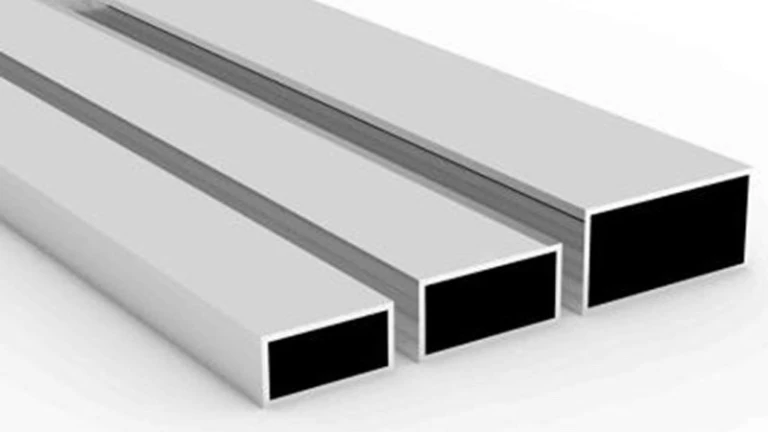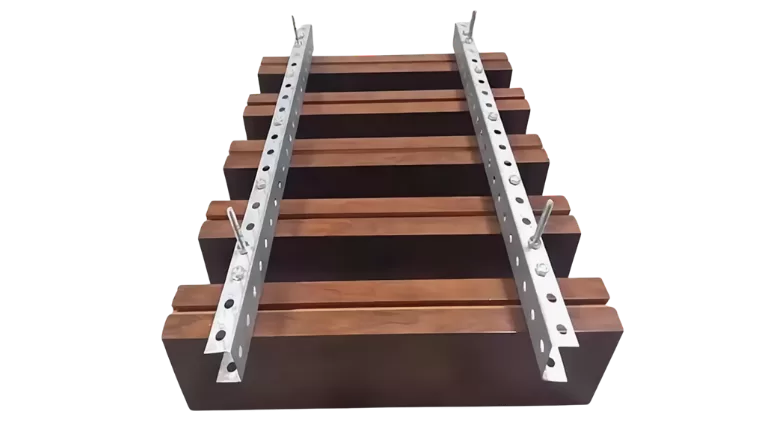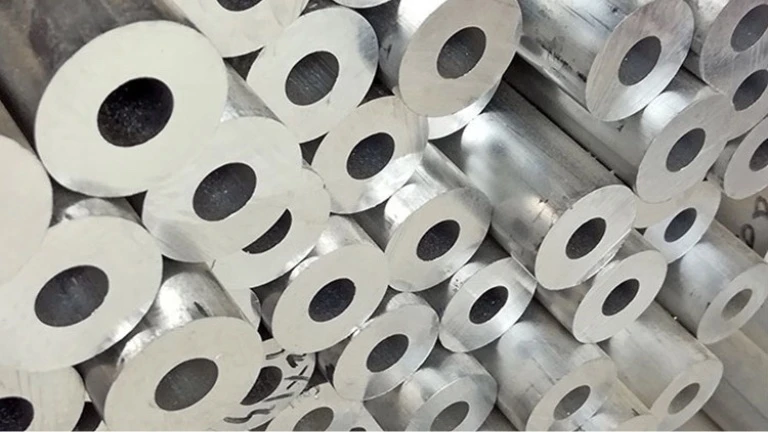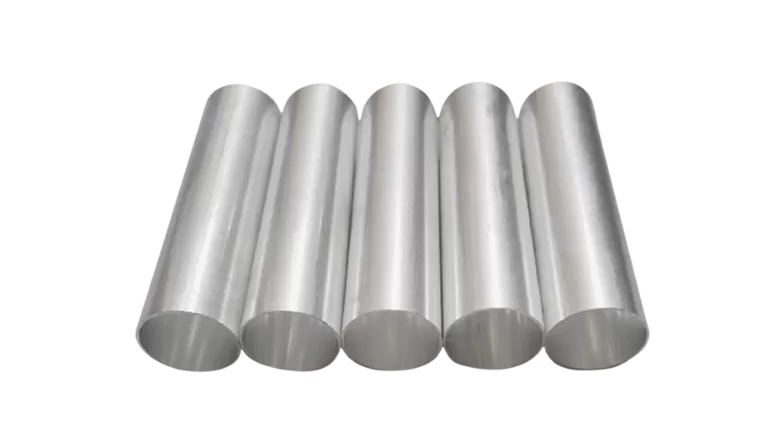Custom Lightweight Aluminum Microchannel Tube
Aluminum microchannel tubes are multi-port flat aluminum extrusions featuring multiple parallel microchannels inside. They are commonly used in high-efficiency heat exchange systems.
Compared to traditional round tubes, their flat, multi-port design significantly enhances heat transfer efficiency and reduces refrigerant usage. As a result, they are widely applied in automotive air conditioning, residential and commercial refrigeration equipment, and other related fields.
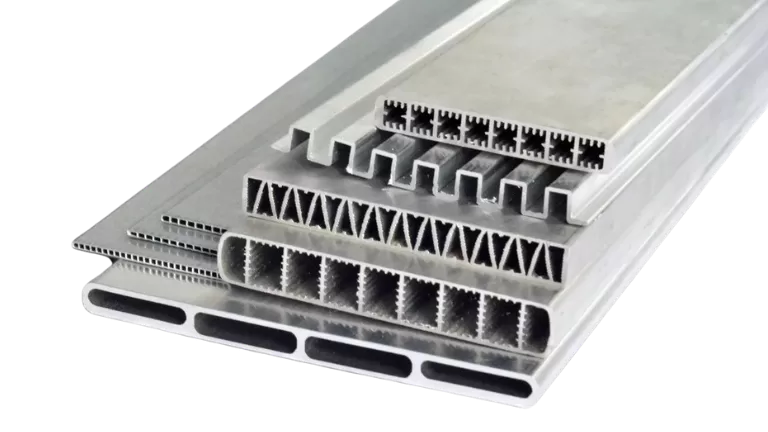
Aluminum Microchannel Tube Manufacturer
We specialize in the design and manufacture of custom aluminum microchannel tubes, offering advanced solutions for a wide range of heat transfer applications. Equipped with high-precision aluminum extrusion equipment, we produce microchannel tubes from premium aluminum alloys. Each tube features multiple parallel channels to optimize heat exchange efficiency while minimizing both material and refrigerant usage.
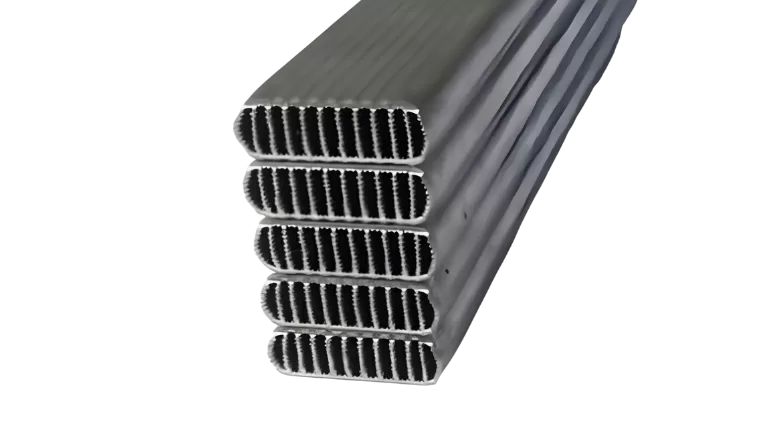
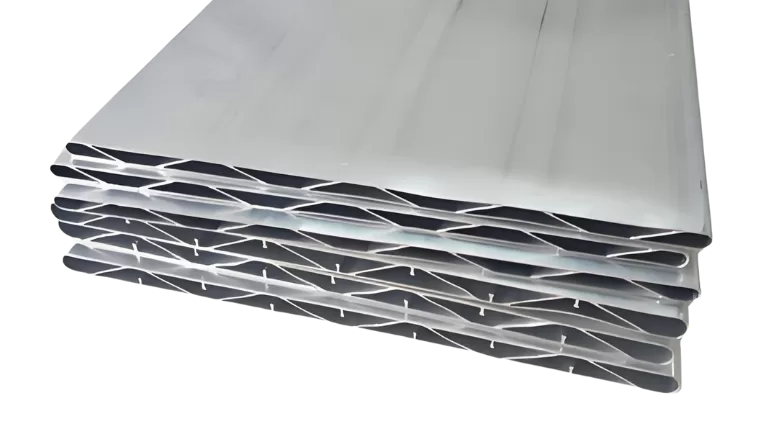
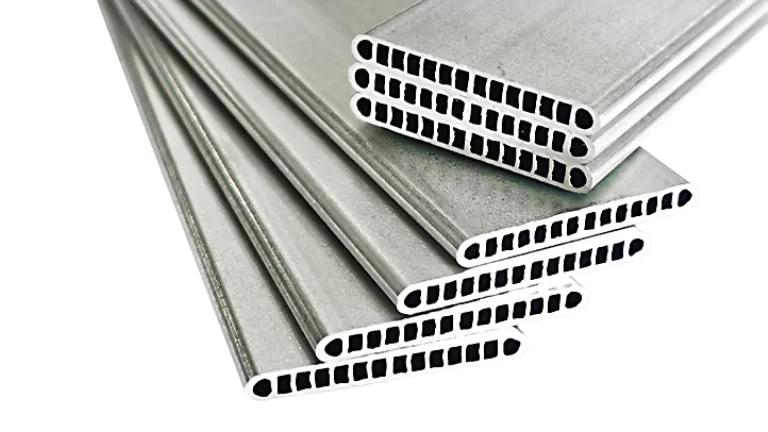
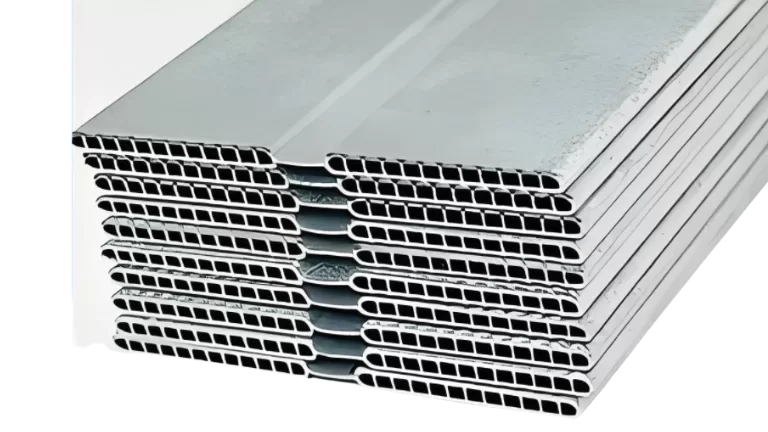
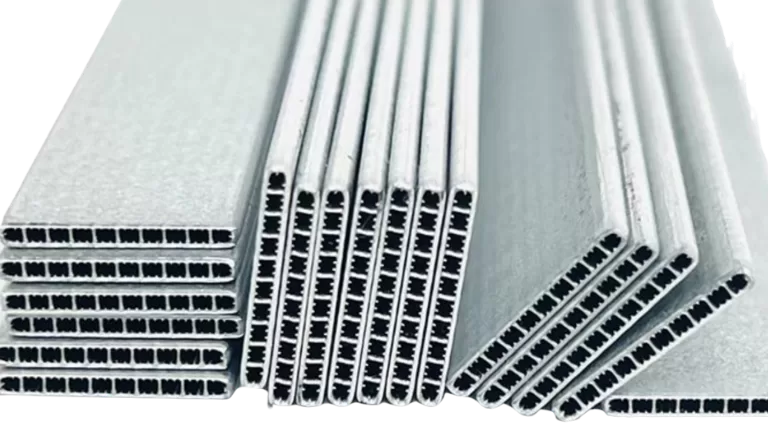
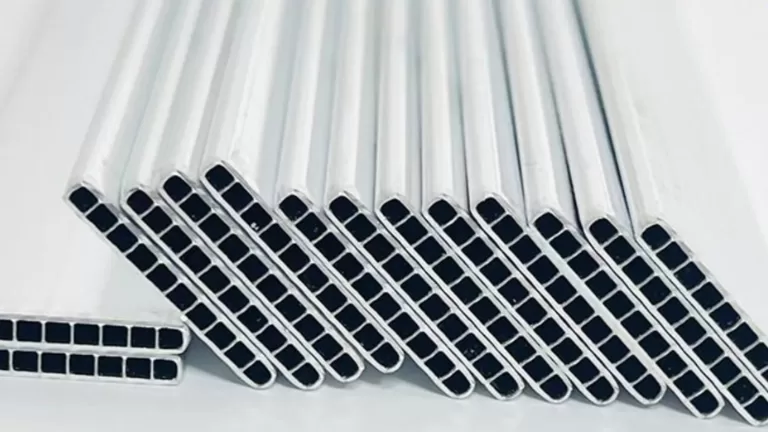
Custom Microchannel Tube Specification
| Item | Specification |
|---|---|
| Project Type | Microchannel Tube |
| Material | Aluminum Alloys: 1000 series, 3000 series, 6000 series |
| Temper | O, H12, H14, H16, H18, H22, H24, etc. |
| Width | 6 mm - 40 mm |
| Height | 0.8 mm - 8.0 mm |
| Wall Thickness | >/= 0.3 mm (minimum available: 0.12 mm) |
| Length | As required by customer |
| Channels | Customized according to design |
Aluminum Alloy Selection for Microchannel Tubes
3000 Series Aluminum Alloys:
The most commonly used material for microchannel aluminum tubes is the 3000 series, especially grades like 3003 and 3102. These alloys provide excellent corrosion resistance, good formability, and superior thermal conductivity, making them ideal for heat exchangers in automotive air conditioning and refrigeration systems. Their balance of strength and workability ensures reliable performance in demanding environments.
1000 Series Aluminum Alloys:
1000 series aluminum, such as 1050 and 1060, features extremely high purity, which delivers outstanding thermal conductivity. While these grades have relatively low mechanical strength, they are suitable for applications that prioritize maximum heat transfer and formability over strength requirements.
6000 Series Aluminum Alloys:
6000 series alloys, including 6061 and 6063, are chosen when higher mechanical strength and structural integrity are needed. These alloys still offer good corrosion resistance and workability, making them suitable for microchannel tubes used in environments that require enhanced durability or additional fabrication processes.
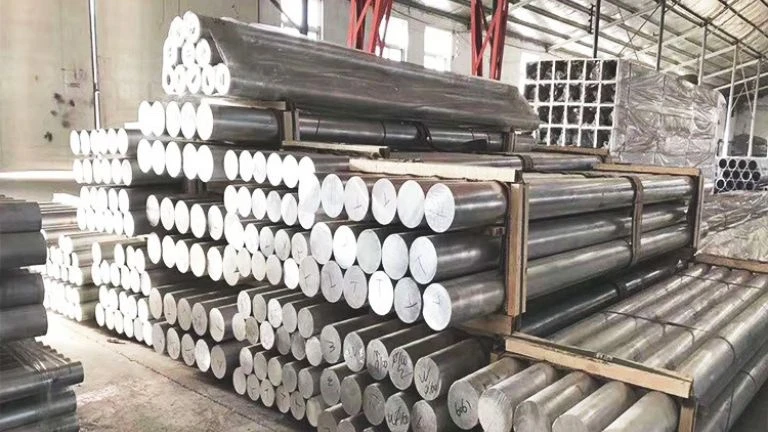
Mold Design and Development
We have the in-house capability to design and manufacture extrusion dies specifically for aluminum microchannel tubes, ensuring exceptional accuracy and production efficiency. Our technical team collaborates directly with clients to develop custom dies based on their drawings or specifications, optimizing each design for targeted thermal and structural performance. The typical turnaround for microchannel tube die development is about 7 days, followed by the production of sample tubes for client validation prior to commencing mass production.
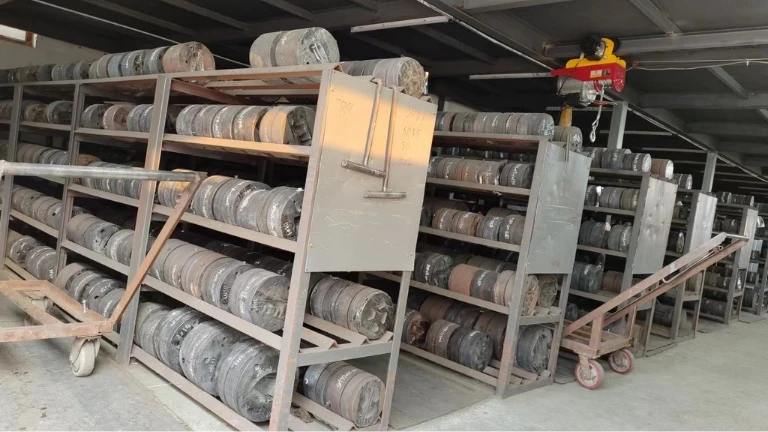
Aluminum Section Extrusion
Our manufacturing plant is equipped with more than 40 advanced extrusion lines, including high-capacity presses designed for the production of aluminum microchannel tubes. This state-of-the-art equipment allows us to extrude microchannel tubes in a wide range of sizes, channel configurations, and alloy types to meet diverse application needs. Whether for automotive heat exchangers, HVAC, or refrigeration systems, our flexible production capabilities ensure we can supply both standard and custom-designed microchannel tubes to suit the specific requirements of each client and industry.
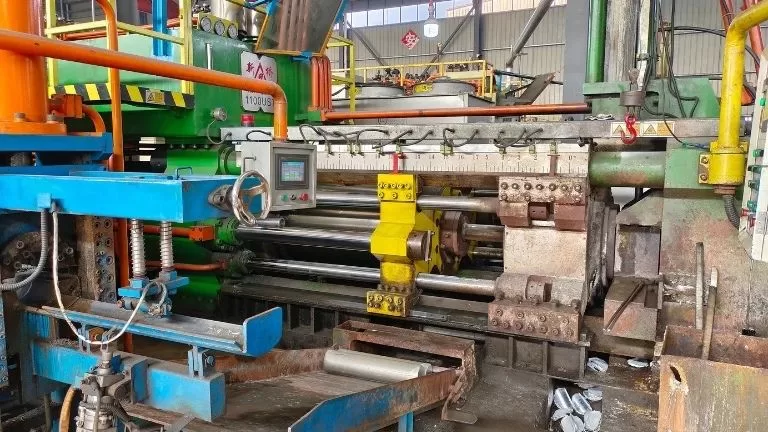
Aluminum Profile Manufacturing Capabilities
Surface treatment of aluminum microchannel tubes is crucial for enhancing corrosion resistance, extending lifespan, and improving heat exchange efficiency. It also supports better brazing, offers a clean appearance, and allows for industry-specific customization. Effective surface finishing ensures product reliability, meets industry standards, and increases overall customer satisfaction.
Anodizing
Anodizing forms a strong, corrosion-resistant oxide layer on aluminum microchannel tubes and can add color for improved appearance. However, this oxide layer acts as an insulator and can decrease electrical conductivity. Thinner anodized layers lessen this impact, while thicker coatings provide better protection but reduce conductivity further.
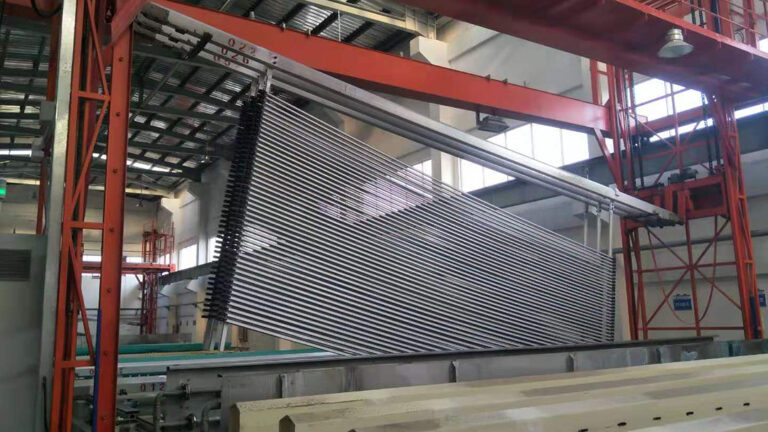
Powder Coating
Powder coating covers the tube surface with a layer of colored powder that is cured to form a tough, protective finish. This process boosts corrosion resistance and allows for a variety of color options. Spray coating, using liquid paint, achieves similar protective and aesthetic results.
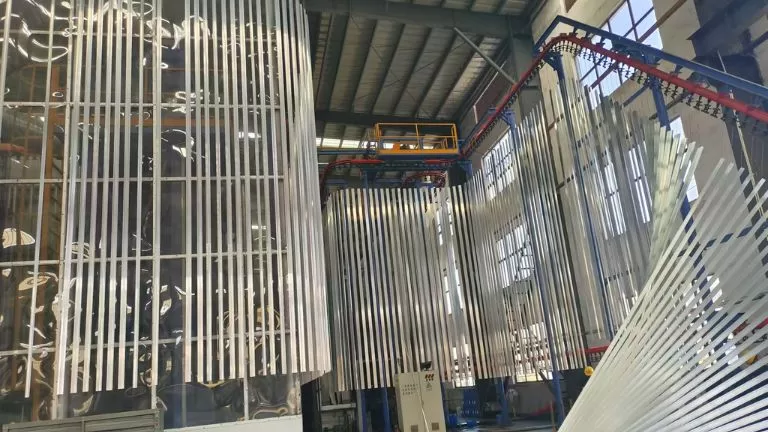
Other Surface Treatments
Chemical passivation creates a thin, stable film on the aluminum surface, significantly improving corrosion resistance without affecting conductivity or the tube’s appearance. These treatments enhance the durability, performance, and attractiveness of aluminum microchannel tubes, making them suitable for a wide range of applications. Choosing the right surface treatment is crucial for ensuring the long-term effectiveness of the tubes.
Applications of Aluminum Microchannel Tubes
1. Automotive Industry:
Aluminum microchannel flat tubes are used in automotive air conditioning systems, engine cooling systems, and transmission components. They offer excellent thermal conductivity and corrosion resistance, making them ideal for demanding automotive applications.
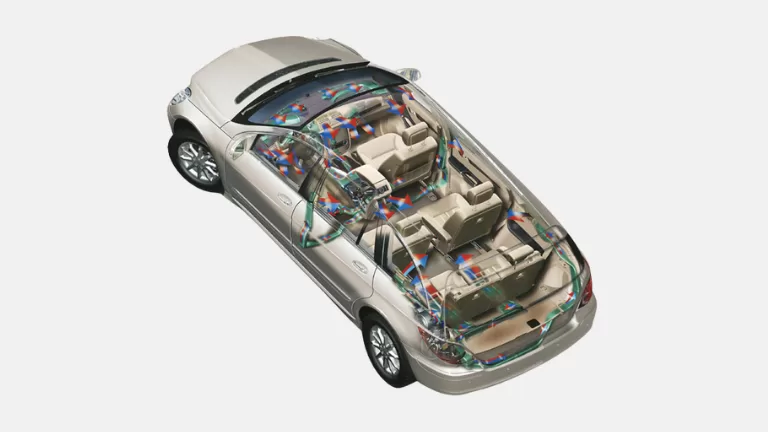
2. Air Conditioning Industry:
These tubes are widely used in the manufacturing of air conditioners. Their superior heat transfer and dissipation properties help improve the energy efficiency ratio (EER) of air conditioning units.
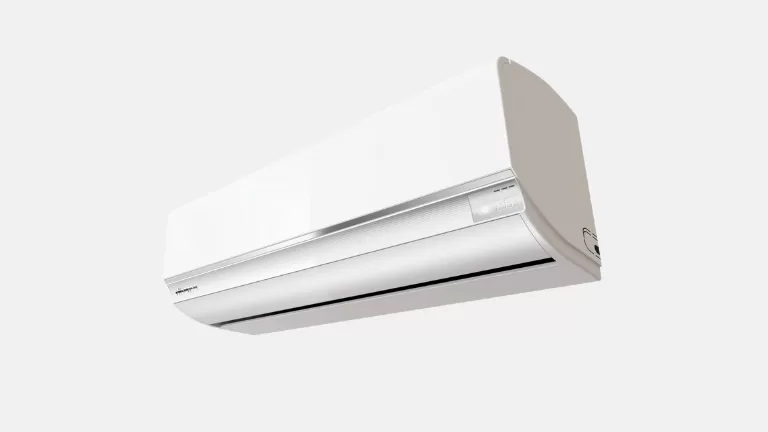
3. Electronics Industry:
Aluminum microchannel flat tubes are applied in electronic heat sinks, computer coolers, and similar products. Their excellent thermal performance ensures the stability and safety of electronic devices.
4. Other Industries:
They are also used in solar water heaters, industrial gas coolers, and other products, offering broad application prospects due to their reliable heat exchange and corrosion resistance.
Key Performance Advantages
1. High Heat Exchange Efficiency:
The multi-channel and flat design delivers 20–30% higher heat transfer efficiency compared to traditional round tubes.
2. Energy Saving & Eco-friendly:
Requires over 30% less refrigerant charge, supporting compliance with environmental regulations (such as EU F-Gas standards).
3. Lightweight:
Aluminum microchannel tubes are 60% lighter than copper tubes, significantly reducing overall equipment weight (especially in automotive air conditioning).
4. High Pressure & Corrosion Resistance:
Aluminum alloy combined with surface treatments can withstand high pressures (e.g., 35 bar in automotive A/C systems) and salt spray corrosion.
5. Compact Design:
The flat structure saves space, making it ideal for high-density heat exchangers (such as electric vehicle battery cooling systems).
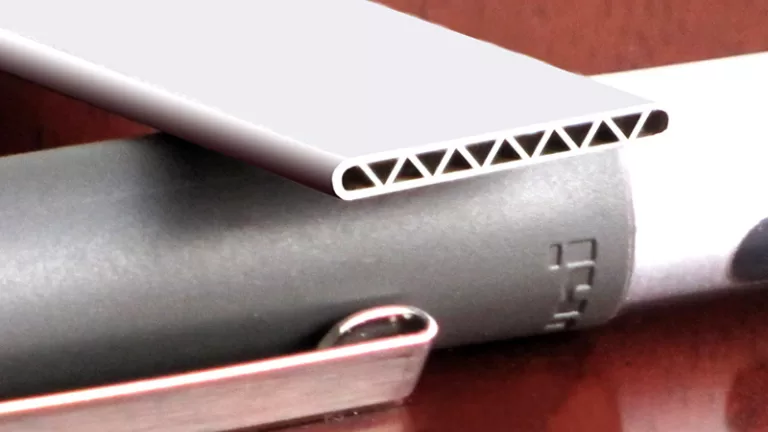
Core Structure and Features
1. Multi-channel Design:
Each flat tube contains multiple small channels (typically 5 to 20), which optimize fluid distribution and significantly improve heat transfer efficiency.
2. Flat Shape:
The rectangular cross-section offers a larger contact area, enhancing heat exchange with air or fluid.
3. Ultra-thin Wall Thickness:
Wall thickness can be precisely controlled to below 0.2 mm, achieving a balance between lightweight construction and pressure resistance.
4. Customizable Parameters:
Width, height, number of channels, and wall thickness can be tailored to specific requirements
Aluminum Microchannel Tube vs. Traditional Copper Round Tube
| Feature | Microchannel Aluminum Flat Tube | Traditional Copper Round Tube |
|---|---|---|
| Heat Exchange Efficiency | High (multi-channel + large contact area) | Lower |
| Weight | Light (aluminum is only 30% the density of copper) | Heavy |
| Refrigerant Usage | Reduced by 30% - 50% | High demand |
| Corrosion Resistance | Excellent (optional surface treatments) | Requires coating protection |
| Cost | Lower total cost (material + energy efficiency) | High material cost |
| Environmental Impact | 100% recyclable, RoHS compliant | High pollution from copper mining |
RFQ of Extruded Aluminum Profile
1. Automotive Applications:
Prioritize narrow models (16–20 mm width) with high-pressure resistance, such as 3003-H14.
2. Commercial Air Conditioning:
Choose wide models (25–32 mm width) and clad tubes for easier brazing.
3. High Corrosion Environments:
Recommend using 3102 alloy combined with surface coating.
HTS New Materials, based in Jiangxi Province, China, is a leading aluminum extrusion manufacturer with over 40 advanced production lines and powerful equipment, including a 6000-ton extrusion press. We produce a wide range of aluminum profiles for industries such as construction, industrial applications, and high-end doors and windows, including thermal break profiles. Our services extend to comprehensive surface treatments like anodizing, powder coating, fluorocarbon coating, and wood grain transfer, as well as advanced machining and fabrication capabilities such as CNC machining, drilling, and welding. Committed to quality and innovation, we deliver tailored aluminum solutions to meet the diverse needs of clients globally.
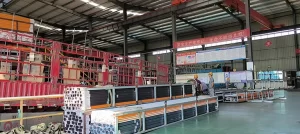
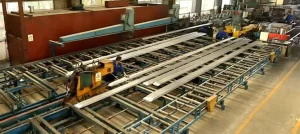
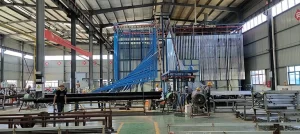
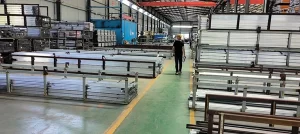

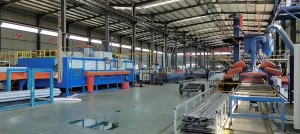
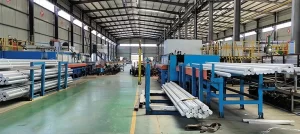
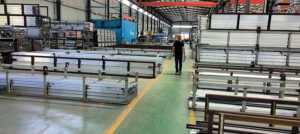
The heat treatment of aluminum extrusions determines their mechanical properties, strength, and suitability for specific applications. Among the various heat treatment methods, T5, T6, and T66 are the most commonly used. Here’s an in-depth look:
| Heat Treatment State | Cooling Method | Strength | Key Features and Benefits | Applications |
|---|---|---|---|---|
| T5 | Air cooling (fan) | Moderate | Adequate strength, good dimensional stability, used for architectural purposes. | Windows, doors, curtain walls, building structures. |
| T6 | Water quenching (fast) | High | Higher strength and hardness, ideal for industrial and structural uses. | Automotive, aerospace, machinery, transport parts. |
| T66 | Water quenching (fast) | Very high | Optimized mechanical properties for higher strength and performance demands. | Automotive, rail transportation, high-end machinery. |
Other Heat Treatment States
- T4: Solution heat-treated and naturally aged. Used in applications requiring intermediate strength and enhanced formability.
- T7: Overaged for better stress-corrosion resistance, often used for aerospace and marine purposes.
- O (Annealed): Very soft condition suitable for extensive forming or bending requirements.
- F (As-Fabricated): No heat treatment applied, used in non-critical applications with low strength requirements.
. Anodizing (Oxidation)
- Common Colors:
Natural silver
Black
Champagne
Light bronze
Dark bronze
Gold
2. Electrophoresis Coating (E-Coating)
- Common Colors:
Black
Champagne
Light bronze
Dark bronze
Custom metallic colors
3. Powder Coating
- Colors:
Can match any color based on the RAL color chart.
Offers textures like matte, gloss, satin, and custom finishes.
4. PVDF Coating (Polyvinylidene Fluoride)
- Colors:
Also customizable using the RAL color chart.
High-end finishes with matte or glossy effects.
5. Wood Grain Transfer Printing
- Colors and Patterns:
Mimics various wood types (e.g., oak, walnut, teak, mahogany).
Custom patterns available based on provided samples.
6. Film Lamination
- Colors and Patterns:
Includes textures like marble, leather, and solid colors.
Custom finishes and patterns based on provided samples.
Pre-Treatment Options (Impact on Final Color)
- Brushing/Polishing: Produces smooth or reflective metallic surfaces.
- Sandblasting: Adds a rough, matte texture before the final surface treatment.
We provide a wide range of machining services for aluminum extrusions to meet specific requirements. These include cutting off/section removal, slotting, drilling holes, tapping threads, bending, and localized stamping to create deformations. For example, we can trim extruded profiles to custom lengths, mill precise grooves, create threaded holes for fasteners, bend profiles into specific shapes, or apply localized stamping to achieve custom forms or deformation.
In addition to these processes, we also offer TIG/MIG welding to join aluminum components for a solid structure. Furthermore, our services include assembly of common accessories, such as brackets, corner connectors, screws, hinges, end caps, and rubber seals, providing complete and ready-to-install profile solutions tailored to your project needs. This ensures that we can handle everything from simple cuts to highly customized fabrication and assembly, all with precision and efficiency.
Mold fees are an essential part of the custom aluminum extrusion process. Since every order requires a uniquely designed mold tailored to specific requirements, these molds cannot be used for other products. Therefore, the mold fee is necessary and non-negotiable.
We require 100% upfront payment of the mold fee before mold development begins to ensure timely production. However, as a token of appreciation for your support, we offer a refund of the mold fee or equivalent discounts once the order reaches a certain production volume. Specific policies can be discussed based on your order volume and collaboration details.
Our minimum order quantity (MOQ) varies depending on the size of the product. For smaller-sized products, the MOQ is typically 500kg, while for larger-sized products, it is 2 tons.
We will specify the exact MOQ requirements during the quotation process. If your order quantity does not meet the MOQ, we can still arrange production, but an additional fee will be applied to cover mold preheating and production setup time. Rest assured, this extra fee will be reasonable, and we aim to keep it as minimal as possible to ensure smooth cooperation.
Packaging can be customized according to your needs. Options include using protective film or paper to separate and protect the surface, or foam film for additional surface protection. Products can be palletized or packed into cartons, and the quantity per pallet or carton can be specified by the customer.
The standard packaging involves bundling several pieces together with plastic wrap and then securing them onto pallets. Any packaging requirements beyond the standard will be accommodated, and the associated costs will be clearly provided to the customer.
Mold production typically takes 7 days. After the sample is confirmed, producing a full container load of 26 tons generally requires 14 days for extrusion alone. If surface treatment is required, an additional 3 days will be needed. For machining, extra time will be required depending on the complexity and volume of the machining work. The exact additional time for machining will be determined based on the specific processing requirements.
Aluminum profiles are naturally corrosion-resistant due to the formation of a thin, protective oxide layer when exposed to air or water. This oxide layer is stable and self-repairing, meaning that even if the surface is scratched or cut (such as at exposed ends or during processing), the aluminum will not rust or corrode like iron or steel. Instead, the exposed areas will quickly form a new oxide layer, providing continuous protection against further oxidation.
With proper design, installation, and maintenance, aluminum profiles can last for decades, even in challenging environments. For example, untreated aluminum can easily withstand 20-30 years in outdoor applications, while profiles with surface treatments like anodizing or powder coating can last even longer, often exceeding 50 years. This makes aluminum an excellent choice for applications where durability and long-term performance are essential.
The price of aluminum profiles consists of several components: raw material costs, extrusion processing fees, surface treatment fees, machining costs, and additional packaging fees. Among these, the cost of aluminum as a raw material tends to fluctuate frequently, while other fees remain relatively stable. Due to these fluctuations, our quotations are typically valid for 7 days.
Pricing can be structured in different ways depending on the product and requirements. It can be calculated by weight (e.g., cost per ton), by length (e.g., cost per meter), or by piece (e.g., cost per unit). For products involving extensive machining, such as heat sinks, pricing is generally calculated on a per-piece basis to accurately reflect the additional processing costs. This flexible pricing approach ensures the quote is tailored to the specific needs of the customer.
We can manufacture aluminum profiles in compliance with technical requirements that meet European standards (EN), American standards (ASTM/AA), or other standards as specified by the customer. Custom production is tailored to ensure that the profiles meet the specific standard requirements requested.

